Related Research Articles

François-Marie Arouet, known by his nom de plumeM. de Voltaire, was a French Enlightenment writer, philosopher (philosophe), satirist, and historian. Famous for his wit and his criticism of Christianity and of slavery, Voltaire was an advocate of freedom of speech, freedom of religion, and separation of church and state.
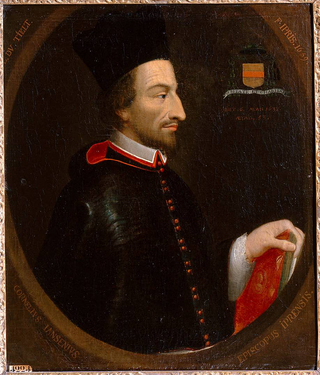
Jansenism was an early modern theological movement within Catholicism, primarily active in the Kingdom of France, that arose in an attempt to reconcile the theological concepts of free will and divine grace. Jansenists claimed to profess the true doctrine of grace as put forth by Augustine of Hippo. In 1653, Pope Innocent X promulgated the bull Cum occasione, which condemned five errors attributed to Jansenism, including the idea that Christ did not die or shed his blood for all men.
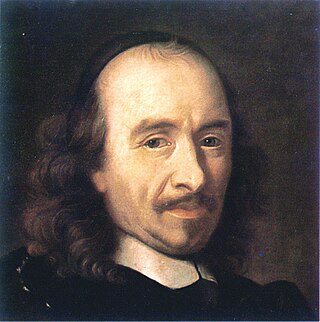
Pierre Corneille was a French tragedian. He is generally considered one of the three great 17th-century French dramatists, along with Molière and Racine.
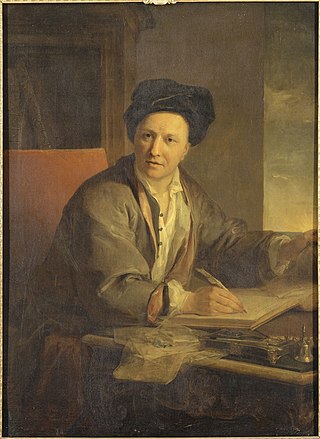
Bernard Le Bovier de Fontenelle, also called Bernard Le Bouyer de Fontenelle, was a French author and an influential member of three of the academies of the Institut de France, noted especially for his accessible treatment of scientific topics during the unfolding of the Age of Enlightenment.

Nicolas Boileau-Despréaux, often known simply as Boileau, was a French poet and critic. He did much to reform the prevailing form of French poetry, in the same way that Blaise Pascal did to reform the prose. He was greatly influenced by Horace.

Thomas Corneille was a French lexicographer and dramatist.

Jean-François de La Harpe was a French playwright, writer and literary critic.

Julien Louis Geoffroy was a French literary critic.
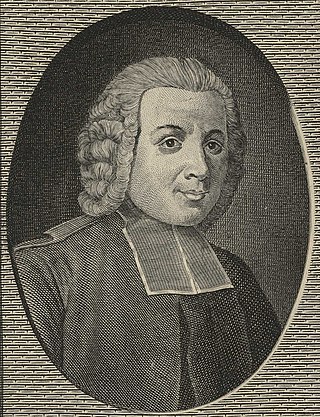
Jean-Baptiste Dubos, also referred to as l'Abbé Du Bos, was a French author. He was also a diplomat and an art critic.
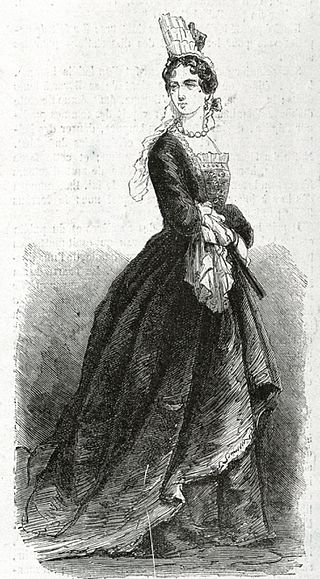
François Timoléon, abbé de Choisy was a French cross-dresser, abbé, and author. He wrote numerous works on church history as well as travelogues, memoirs and fiction.

Anthony HamiltonPC (Ire), also known as Antoine and comte d'Hamilton, was a soldier and a writer. As a Catholic of Irish and Scottish ancestry, his parents brought him to France in 1651 when Cromwell's army overran Ireland.

Anne-Thérèse de Marguenat de Courcelles, who on her marriage became Madame de Lambert, Marquise de Saint-Bris, and is generally known as the Marquise de Lambert, was a French writer and salonnière.
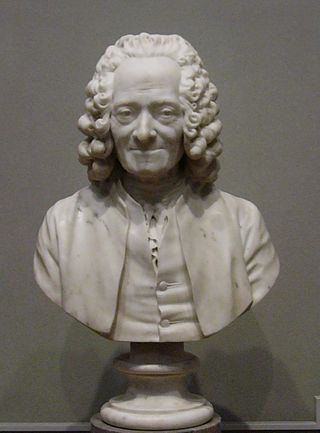
18th-century French literature is French literature written between 1715, the year of the death of King Louis XIV of France, and 1798, the year of the coup d'État of Bonaparte which brought the Consulate to power, concluded the French Revolution, and began the modern era of French history. This century of enormous economic, social, intellectual and political transformation produced two important literary and philosophical movements: during what became known as the Age of Enlightenment, the Philosophes questioned all existing institutions, including the church and state, and applied rationalism and scientific analysis to society; and a very different movement, which emerged in reaction to the first movement; the beginnings of Romanticism, which exalted the role of emotion in art and life.
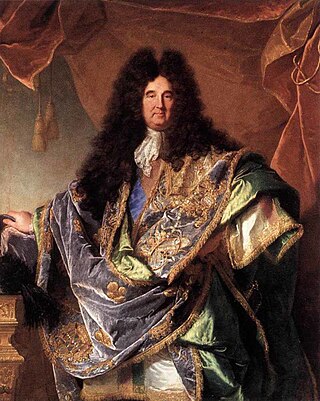
Philippe de Courcillon, Marquis de Dangeau was a French officer and author.

Philippe, Grand Prior of Vendôme (1655–1727) was a French general, a grand prior of France in the order of Malta, as well as an epicurian and a libertine.

The Abbé Pierre François Guyot-Desfontaines was a French journalist, translator and popular historian.
The Commentaires sur Corneille is a work of literary criticism by the French Enlightenment writer and philosopher Voltaire, collecting and analysing the dramatic works of Pierre Corneille (1608–1684). It was first published in 1764, printed in Geneva in twelve volumes. A second edition, published ten years later, added extensive critical commentary, reflecting changes in Voltaire's attitude to Corneille and to criticism. It was Voltaire's largest ever work of critical commentary, described by the author as a distillation of his fifty years of experience in theatre. Though very influential in the late eighteenth century, it was seen more negatively from 1800 onwards, as critics questioned the fairness of Voltaire's commentary and his motives.
Nicolas-Pierre-Henri de Montfaucon de Villars, the abbot of Villars, also known as Henri de Montfaucon de Villars, was a French abbot and writer in the 17th century.

Charles-Pierre Chais (1701–1785) was a Genevan pastor, who spent much of his life in The Hague. He completed a Bible translation in French; however, it derived with commentary from English-language sources.

Renan Larue is a French writer, literary scholar and historian of vegetarianism. He is the author of several books on vegetarianism or veganism, including Le végétarisme et ses ennemis (2015), a history of vegetarianism from Pythagoras until the modern day, and La pensée végane: 50 regards sur la condition animale (2020). In 2016 he offered the first course in vegan studies in the United States at the University of California, Santa Barbara.
References
- 1 2 3 4 5 6 7 "Richard John Parish", Centro Interdipartimentale di Studi su Pascal e il Seicento (University of Catania). Retrieved 15 December 2019.
- ↑ "The abbé de Choisy (1644-1724) : a historical and critical study", SOLO: Search Oxford Libraries Online (Bodleian Library). Retrieved 15 December 2019.
- ↑ "Recognition of Distinction", Oxford University Gazette, Supplement (2) to no. 4408, 22 July 1996. Retrieved 25 November 2016.
- ↑ "Ambassador awards Palmes académiques to three British researchers in Oxford", French Embassy in London, 23 June 2015. Retrieved 15 December 2019.
- ↑ CatzEye: St Catherine's College, Oxford (Trinity Term 2012), p. 1.
- ↑ William Burgwinkle, Nicholas Hammond, Emma Wilson (eds.), The Cambridge History of French Literature (Cambridge University Press, 2011), p. xx.